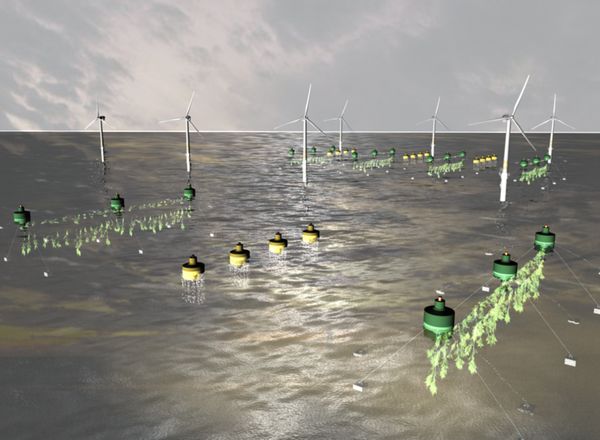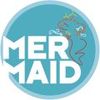Portal:MERMAID/North Sea - Wadden Sea
Introduction study site
| North Sea Site Factsheet | |
|---|---|
| Geographical location | North Sea, north of the Netherlands (Gemini project) |
| Offshore distance | 55 km |
| Depth | 29.5 - 33.4 m |
| Substrate | Mainly sand (some thin clay layers) |
| Water temperature | 2 - 20°C |
| Salinity | 32.5 - 35.0 psu |
| Current magnitude | 0 - 0.6 m/s |
| Mean tidal range | Approximately 2 m |
| Significant wave height | Generally lower than 2.1 m |
| Extreme wave height | 10 m (1/50 yrs.) |
| Average wind speed | 10 m/s |
Combination User Functions & Design
In addition to wind energy, the combination with the following potential secondary functions will be studied and assessed:
- Seaweed farming: Seaweed will increasingly gain importance as a raw material and is currently already imported by Dutch companies from Asia and France. The most relevant benefit of local cultivation is the possibility to offer wet seaweed on the market.
- Shellfish aquaculture: The shellfish industry is looking for additional fishing grounds for mussel seed collectors and cultivation of mussels on longlines. An additional market for 50,000 tonnes of blue mussels is expected.
- Wave energy extraction: Wave energy may be an option; however, the first studies reveal limited energy production potential.
A modular approach will be used for the structures for seaweed and shellfish cultivation, enabling an easy extension of the activities. These structures will be located inside and outside the offshore wind farm and will not be connected to the turbines. An alternation of seaweed and shellfish structures is envisaged. Fish farming is not feasible in this study site due to the high temperature (> 18°C in summer) and the relatively shallow water (30 m).
Outlook & Challenges
In the future the multi-use platform may be extended to other user functions such as facilities for energy storage, tourism (recreational fisheries and diving trips) and fisheries (passive fishing gear).
Some of the key challenges that deserve further study are: the design of the seaweed/mussel farming system within the offshore wind farm (integration of the two types of aquaculture, design of harvesting equipment, etc.), the ecological challenges linked to aquaculture activities (e.g. risk assessment of environmental impact and the mitigation of diseases) and evaluation of the environmental and socio-economic benefits of this multi-use platform.
The operational challenges of this study site include the relatively high distance to the nearest main port (85 km) and the extreme wave heights which may occur during storms.

